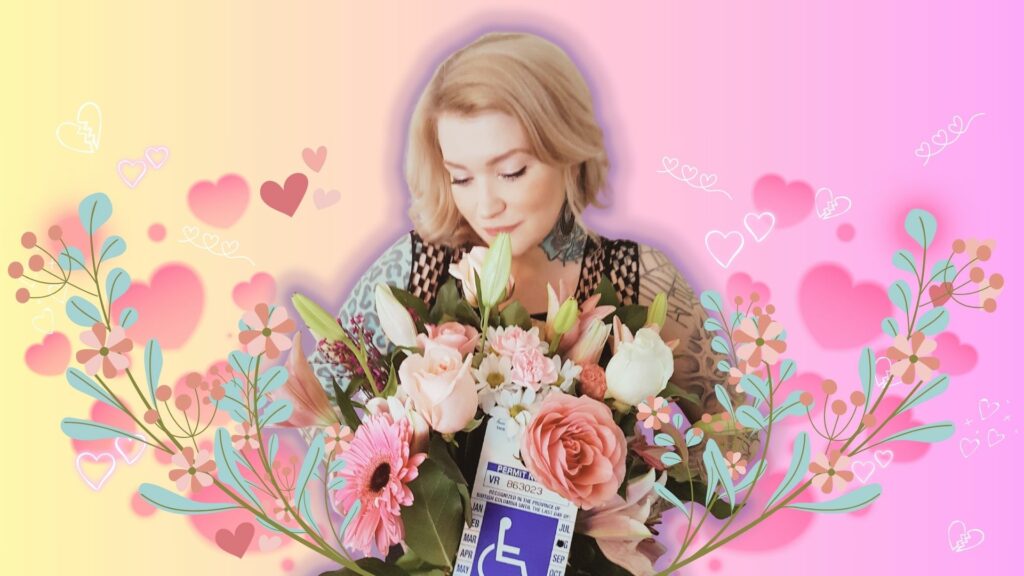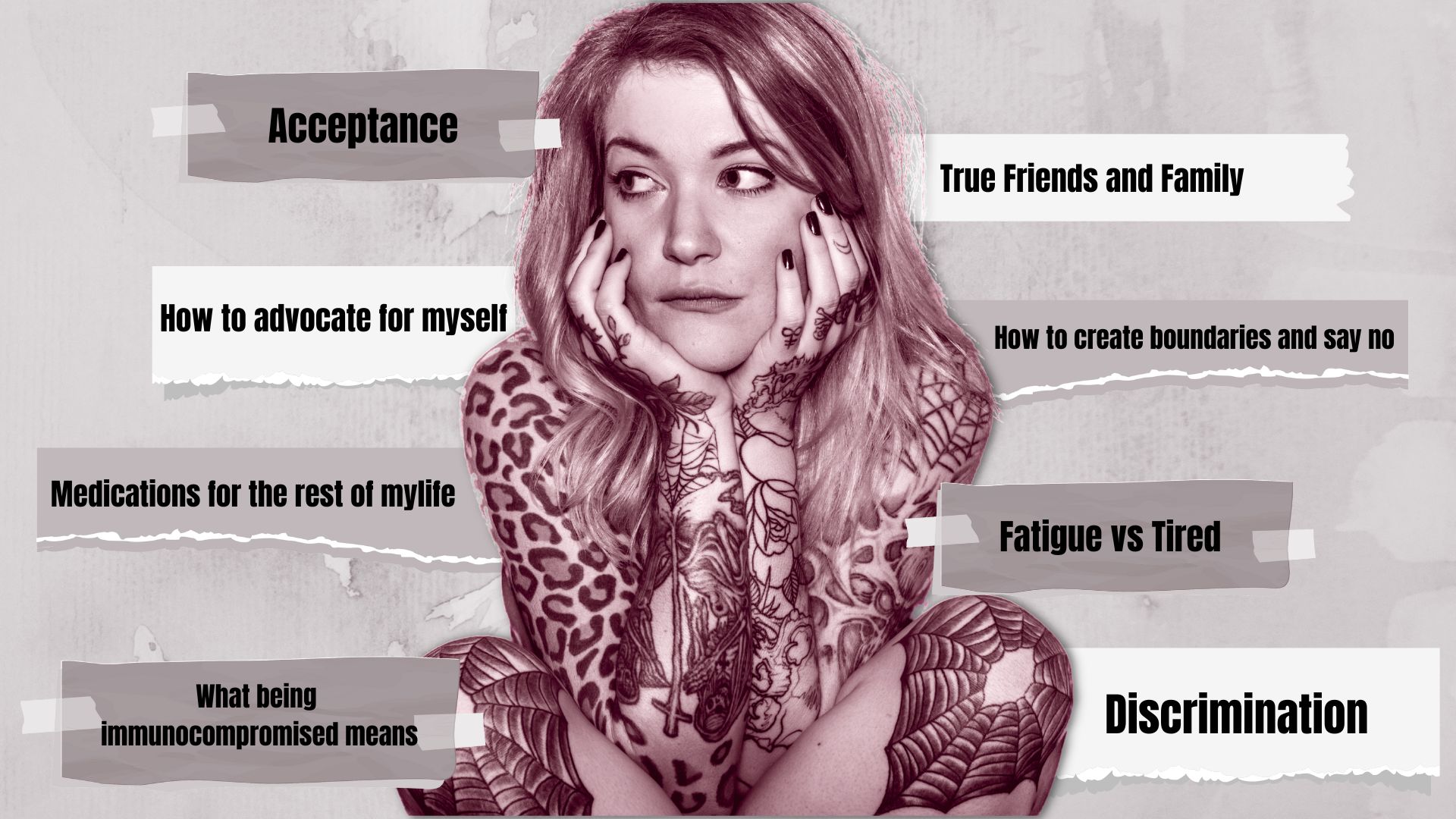Navigating the dating world while managing a chronic illness like rheumatoid arthritis can be challenging. I was diagnosed with the disease, and a few more to follow, at the age of 29 — my prime dating years. Ever since I heard the words “you have rheumatoid arthritis” nothing has ever been the same.
From my physical abilities to my career, parenting, family dynamics, and yes, even my dating and love life, no aspect of my world has remained untouched by this chronic condition. While I strive not to let my illness define me, its profound impact remains undeniable, especially in the realm of dating and the pursuit to find love in this world.
As I search for a partner who embodies true compassion, understanding, and unwavering support for my condition, I’ve gathered a few crucial insights along the way to make the overwhelming challenge of dating a little easier and safer. I hope these insights help you too.
Online Dating
Online dating, while it makes finding a suitable match easier, is not without its challenges. Add in a chronic illness, and the challenge gets greater. The vast number of options available in online dating can be overwhelming, making it challenging to make meaningful connections, especially once something undesirable about someone comes up.
The lack of face-to-face interaction initially can hinder the development of genuine connections and make rejecting someone easier and more convenient with just a few clicks to unmatch them.
The amount of times I have told a guy in a dating app that I have a chronic illness and then suddenly no longer have that match is far more often than I’d like. There is also the slow ghosting, where they respond slower, less often, don’t ask questions, and let the conversation fizzle out once I reveal my invisible illness.
The Pain of Rejection
The harsh reality is not everyone is willing to date someone with a chronic condition, though many are. This can be apparent right away or take a bit of time to surface and develop. There have been times where I have been asked sexual questions about my abilities in bed right away, or sometimes the guy doesn’t really know what my chronic illness is and is eager to have me educate them until the harsh reality of my disease sets in for them and poof they go.
It hurts. When it does happen I want to scream because we are so much more than our condition and what happened to us can happen to anyone, including their next partner or themselves.
The feeling of being rejected due to my chronic illness can create a sense of isolation and loneliness. I end up experiencing some intense negative emotions, question my self-worth, and wonder if I will ever be accepted for who I am.
The feeling of being rejected for a condition we cannot change ignites feelings of helplessness and frustration. It highlights the unfairness of a world where circumstances dictate our worth, like our disabilities. The rejection amplifies the already existing emotional and physical burden of living with a chronic illness — we become feeling like a burden. It reaffirms the struggle and challenges faced on a daily basis, making it hard to find solace or escape from the pain.
But the thing is, I’m not rare. In fact six in 10 adults in the U.S. have a chronic condition. One in four women live with a form of arthritis. What’s going on with me isn’t rare, it is part of being human and can happen to anyone at any age.
Despite my disability, I refuse to settle for the first person who accepts it. I have encountered individuals who were open to dating me because of my illness, but ultimately they were not suitable partners for me or my health.
Navigating Relationships with a Chronic Illness
Here are some of the emotional and social challenges I have faced when dating with rheumatoid arthritis.
Triggering Emotions
Dating can be overwhelming, worsening symptoms and triggering stress, anxiety, depression, and negative emotions like guilt from having to cancel plans. There’s also a fear of becoming too close to someone due to the risk of rejection or judgment because of things I can’t control about myself or my disease. Explaining my conditions repeatedly in the hope of being understood, not rejected, can be exhausting.
RA has made me more cautious in relationships of any kind, not just in the dating world but in friendships and family. I struggle with abandonment issues from immediate family wanting nothing to do with me when I fell ill.
Social and Sleep Challenges
Being social can be difficult because fatigue often leaves me struggling to articulate thoughts, causing cognitive dysfunction. I also find it challenging to engage in lengthy texting conversations due to the strain on my arthritic body. Additionally, my chronic illness has led me to prefer sleeping alone due to painsomnia.
Maturity and Timing
RA has caused me to mature beyond my years, which can be a challenge for some, especially when I’m affected by arthritis and fatigue in the evening when many prefer to start a date.
Taking a Step Back
After many dates and attempts at online dating, I’ve found that focusing on myself and my health is more beneficial than constant swiping and juggling multiple conversations, especially during a flare. Sometimes it’s essential to prioritize self-care, and that’s perfectly okay. I even joke that I have five cats, so who needs a man, really?
Tips for Dating With a Chronic Illness
I’ve learned a few valuable lessons along the way. Here are some of the strategies that have helped me make the most of my dating journey while managing my health.
Choose the right time to disclose
Deciding when to disclose my illness is a personal choice. I tend to share it fairly early on, partly because I work as a professional patient advocate, and it often comes up naturally in conversation. My Instagram, dedicated to raising awareness about arthritis and chronic illness, is another way it becomes apparent. One perk of being a patient advocate on Instagram is that my direct messages remain relatively free from unwanted advances.
Be open and honest
When you do decide to share your illness, be open and honest about your condition. Educate your partner about your symptoms, limitations, and any precautions that need to be taken. Remember this can go both good and bad, but remind yourself that you don’t want someone who isn’t accepting of your illness if they respond in a negative manner.
Be protective of your energy and your worth
I prioritize protecting my energy and self-worth. I can’t control my illness, but I can control who I invest my energy in. If someone isn’t respectful, supportive, and kind, they’re not worth my limited energy or potential stress. However, this protective stance has made my world smaller and more lonely.
Pay attention to how your partner responds to your illness
Pay close attention to how they respond to your disclosure and if they react in a respectful, compassionate way or if they seem uncomfortable or dismissive. But be cautious of someone being too compassionate as this can be “love bombing,” a term used to describe a manipulative tactic used by individuals to gain control and power over someone else.
In my experience with a chronic illness, love bombing has looked like someone being overly supportive of helping me with my medical problems and then suddenly changing to being controlling and demanding and using my health problems against me to reduce my confidence.
Prioritize self-care
Before you even think about dating, it is crucial to ensure that you are taking care of yourself. This means managing your illness, attending doctor’s appointments, and staying on top of your treatment plan. Remember, your health should always come first. In my opinion, dating is not worth falling behind.
Set realistic expectations
Living with a chronic illness means that you may have good days and bad days. It is important to communicate your limitations and set realistic expectations with your partner. This will avoid misunderstandings and unnecessary stress.
Find activities that accommodate your needs
Plan dates that cater to your health requirements. Opt for activities that are low-impact or have accommodations for your condition. This will ensure that you can enjoy the experience without compromising your health.
Seek support
Building a support system is crucial when navigating the challenges of dating with a chronic illness. Surround yourself with friends, family, or support groups who understand your unique situation. They will provide the emotional support you need during both the highs and lows.
Practice self-compassion
It is essential to practice self-compassion throughout your dating journey. Understand that you may face rejection or encounter individuals who are not understanding of your condition. Remember that it is not a reflection of your worth but rather an opportunity to find someone who truly appreciates you.
Dating can be challenging, and adding a chronic illness can make it feel overwhelming, but it’s not impossible. By prioritizing self-care, communicating effectively, and finding activities that accommodate your needs, you can successfully navigate the world of dating while managing your health. Remember to be patient, kind to yourself, and surround yourself with a supportive network.
Be a More Proactive Patient with PatientSpot
PatientSpot is a patient-led, patient-centered research registry for people living with chronic disease and related conditions. You can participate in voluntary research studies about your health conditions and use the app to track your symptoms, disease activity, and medications — and share with your doctor. Learn more and sign up here.






